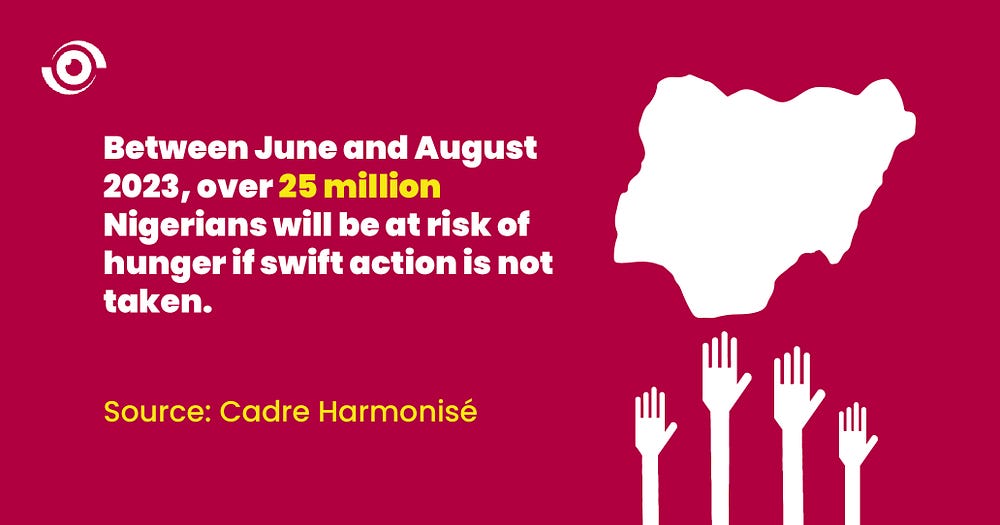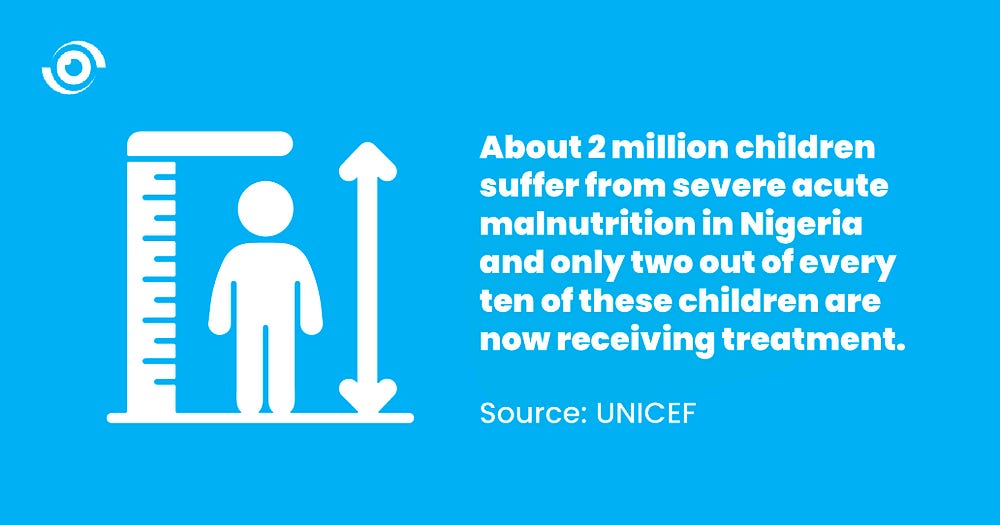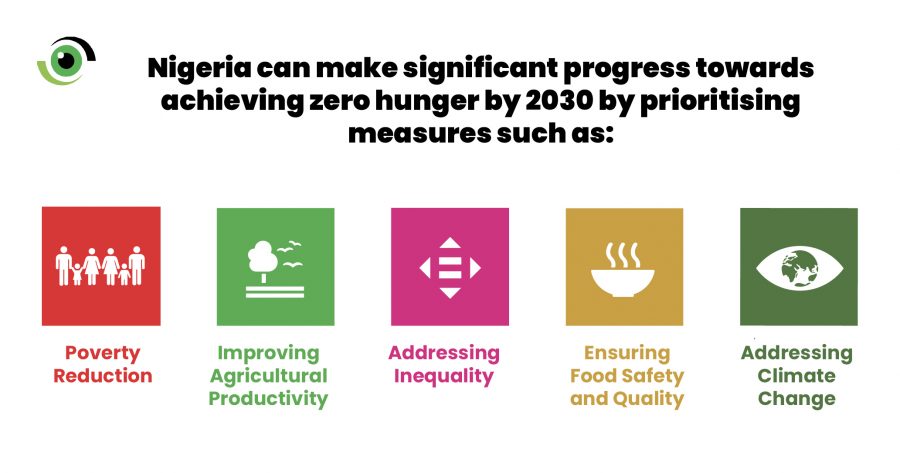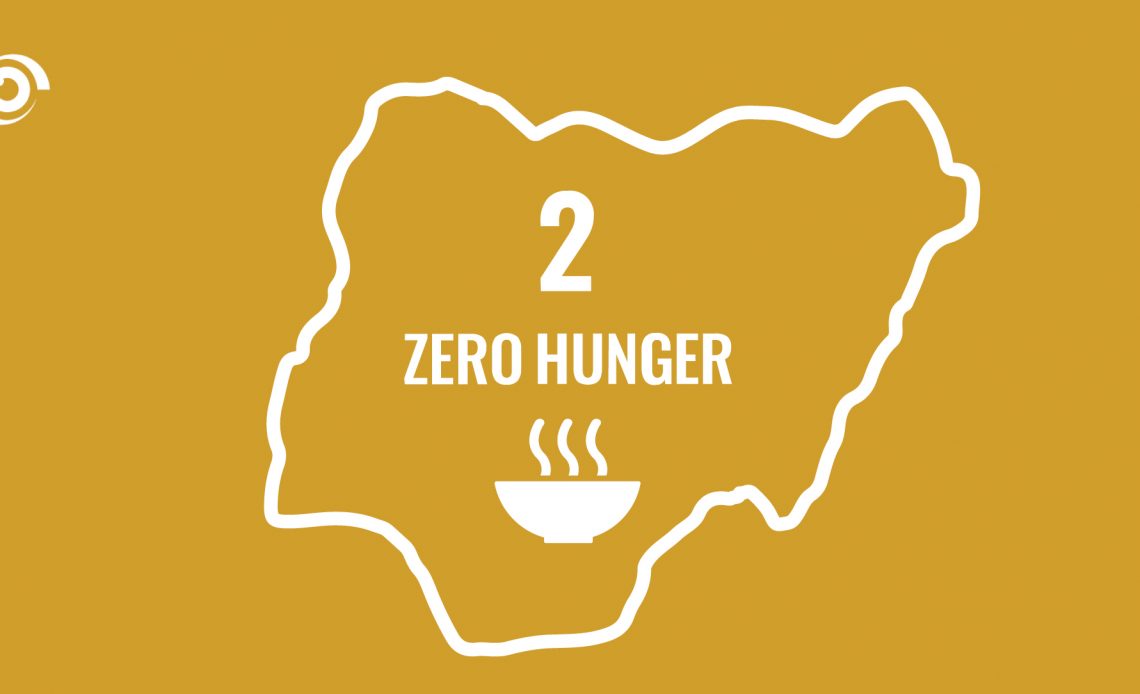By Michael Atima and Olayemi Amusile (Lead Writers)
The world is currently grappling with a severe food crisis. In 2021, 2.3 billion people globally (over 30% of the world’s population) were food insecure and the World Food Programme (WFP) expects this number to increase by 345.2 million in 2023. According to the State of Food Security and Nutrition in the World 2022, global hunger and malnutrition have increased for the third year in a row. The number of undernourished people in Africa increased by 33 million between 2019 and 2021, reaching 258 million. This represents a significant setback in progress towards the global Zero Hunger target.
The Sustainable Development Goal 2 (Zero Hunger) calls for the eradication of hunger by 2030. The objectives are to eradicate hunger, achieve food security, improve nutrition, and advance sustainable agriculture. This is to ensure equitable access to adequate food and reduce the prevalence of hunger, globally. Nigeria, as one of the largest and most populous countries in Africa, has made some efforts in the past towards achieving zero hunger. One example is the “National Multi-Sectoral Plan of Action for Food and Nutrition (NMPFAN) 2021–2025,” a 5-year nutrition action plan that will guide the implementation of interventions and programmes to address hunger and malnutrition across all sectors in Nigeria. However, there is still much work to be done.
State of nutrition in Nigeria
Nutrition in Nigeria has been impacted by the multiple drivers of food insecurity — conflict, climate change, and economic shocks. The COVID-19 pandemic also had a significant impact on food systems exacerbating existing vulnerabilities and inequalities. The October 2022 Cadre Harmonisé analysis, a government-led, and UN-supported food and nutrition analysis carried out twice a year, revealed that between June and August 2023, over 25 million Nigerians will be at risk of hunger if swift action is not taken. This is due to continued conflict, inflation, climate change, and rising food prices.

Nigeria has an abundance of food resources ranging from crop and animal produce. About 70.8million hectares of land is cultivated with maize, cassava, guinea corn, yam, beans, millet and rice. Unfortunately, climate change, high production costs, limited financing, poor access to markets, poor adaptation of new technology and innovations impact the expected output.
Women, children and the elderly are the most affected by food insecurity. About 2 million children suffer from severe acute malnutrition (SAM) in Nigeria and only two out of every ten of these children are now receiving treatment. Data shows that 7.3 million women of reproductive age were affected by Acute malnutrition in 2021. Research conducted in the northern part of Nigeria revealed a malnutrition prevalence of 25.9% among the elderly.

In an interview with Nigeria Health Watch in September 2022, Shawn Baker, former Chief Nutritionist for the U.S. Agency for International Development (USAID) mentioned the following gaps that must be addressed to fix the nutrition anomalies in Nigeria.
- Nutrients and fortification projects are mainly funded by donors.
- Many mothers still require training on the importance of exclusive breastfeeding.
- Nigeria has failed to explore the opportunities available to produce ready to use therapeutic food (RUTF), there is a need for a refined structure in coordination and funding of nutrition programmes.
Achieving Zero Hunger: What we must do

With only seven years till the deadline of the United Nations’ Sustainable Development Goal two, Nigeria must increase its efforts. Given the clear link between food insecurity and poverty, inequality, insecurity and climate change, all of which can impede progress towards achieving zero hunger by 2030, Nigeria must take decisive action to address these issues.
To achieve this, the country should focus on prioritizing the following five measures:
To achieve this, the country should focus on prioritizing the following five measures:
- Poverty is one of the main drivers of food insecurity in Nigeria. To reduce poverty, the government should implement policies that encourage economic growth, such as investing in infrastructure, supporting small and medium-sized enterprises, and creating a conducive environment for job creation. Social safety net programmes, such as cash transfers and food subsidies, can also help to alleviate poverty and improve food security for vulnerable populations.
- Agriculture is the backbone of Nigeria’s economy, and improving agricultural productivity can help to increase food production and reduce food insecurity. To achieve this, the government should invest in modernising agriculture, improving access to credit for farmers, and promoting the use of technology and best agricultural practices.
- Inequality is a significant barrier to achieving food security in Nigeria. To address this, the government should prioritise policies that promote social justice and reduce income inequality. According to the United Nations World Food Programme (UNWFP), women are more likely than men to report food insecurity in nearly two-thirds of countries. Women make up over 80% of the agricultural labour force in Nigeria and they produce the majority of the food used for domestic consumption, however, they have limited access to land and credit resources that could increase their farming productivity.
- Food that is unsafe and poor quality can lead to health issues and contribute to food insecurity. To ensure that Nigerians have access to safe and nutritious food, the government should strengthen food safety regulations and improve the monitoring and enforcement of food standards.
- Climate change is a growing threat to food security in Nigeria, as it can lead to droughts, floods, and other extreme weather events that can damage crops and disrupt food production. To address this, the government should prioritise policies that increase climate resilience while reducing greenhouse gas emissions, such as investing in renewable energy and encouraging sustainable agricultural practices.


